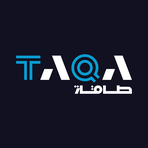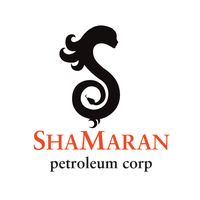ShaMaran Petroleum: Navigating New Waters in Kurdistan
August 9, 2024, 5:52 am

Location: United Arab Emirates, Abu Dhabi Emirate, Abu Dhabi
Employees: 1001-5000
Founded date: 2005
ShaMaran Petroleum Corp. is making waves in the oil and gas sector. Recently, the company closed a significant transaction that reshapes its position in the Kurdistan region of Iraq. This move is not just a business deal; it’s a strategic play that could redefine its future.
On August 7, 2024, ShaMaran announced the completion of its acquisition of TAQA Atrush B.V. This deal also involved selling a portion of its interest in the Atrush Block to HKN Energy IV, Ltd. The result? ShaMaran’s stake in the Atrush Block surged from 27.6% to a commanding 50%. This increase in working interest is like finding a hidden treasure chest in a familiar sea.
The Atrush Block is a critical asset for ShaMaran. With HKN Energy now at the helm as the operator, the company anticipates a boost in production. The synergy between Atrush and the adjacent Sarsang block is expected to enhance efficiency and output. It’s a classic case of two ships sailing in tandem, maximizing their potential.
But the waters are not without storms. The Iraq-Türkiye pipeline (ITP) has been closed since March 2023, creating significant challenges for ShaMaran. This closure has cast a shadow over operations and financial results. However, the company is not sitting idle. It is actively engaging with stakeholders to reopen the pipeline, a move that could unlock new revenue streams.
In the second quarter of 2024, ShaMaran reported a remarkable turnaround. Average daily oil production from Atrush and Sarsang combined reached 54,800 barrels per day (bopd). This is a staggering increase from just 18,000 bopd in the same quarter of 2023. The surge in production is like a phoenix rising from the ashes, showcasing the company’s resilience.
Revenue from local sales also saw a dramatic rise. In Q2 2024, ShaMaran generated $22.6 million, a sharp increase from $6.5 million in Q2 2023. This growth is a testament to the company’s ability to adapt and thrive in challenging conditions. The financial landscape is shifting, and ShaMaran is positioning itself to capitalize on these changes.
The company’s financial health is improving. In Q2 2024, ShaMaran generated $15.8 million in operating cash flow, a stark contrast to the negative cash flow of $0.7 million in the same period last year. This turnaround is not just a flicker of hope; it’s a beacon guiding the company toward a brighter future.
However, challenges remain. The company reported a net loss of $509,000 in Q2 2024, compared to a loss of $27.2 million in Q2 2023. While the losses are shrinking, they still highlight the hurdles ShaMaran faces. The company must navigate these turbulent waters carefully to ensure long-term sustainability.
Debt management is another critical aspect of ShaMaran’s strategy. In June 2024, the company retired $47 million of its 2025 bonds and $5.9 million of its own bonds. This proactive approach to debt reduction is like trimming the sails to catch the wind more effectively. Additionally, the company secured a two-year extension on its bond maturity, providing it with the flexibility to pursue growth opportunities.
Looking ahead, ShaMaran is optimistic. The company plans to initiate a two-well drilling program in Q3 2024, aimed at further increasing production. This initiative is akin to planting seeds for future growth, with the potential to yield significant returns.
The strategic acquisition of TAQA Atrush B.V. and the partnership with HKN Energy are pivotal steps in ShaMaran’s journey. The company is not just expanding its footprint; it’s enhancing its operational capabilities. The conversion of the Kurdistan Regional Government’s 25% interest in the Atrush Block to a carried interest further solidifies this partnership.
As ShaMaran continues to navigate the complexities of the oil and gas industry, its focus remains on maximizing production and revenue. The company’s ability to adapt to changing market conditions will be crucial. The reopening of the ITP could be the key that unlocks new opportunities, allowing ShaMaran to sail smoothly into the future.
In conclusion, ShaMaran Petroleum Corp. is at a crossroads. The recent transaction marks a significant milestone in its growth strategy. With a renewed focus on production and strategic partnerships, the company is poised to make a lasting impact in the Kurdistan region. The journey ahead may be fraught with challenges, but with a solid foundation and a clear vision, ShaMaran is ready to chart its course toward success. The horizon looks promising, and the company is set to ride the waves of opportunity.
On August 7, 2024, ShaMaran announced the completion of its acquisition of TAQA Atrush B.V. This deal also involved selling a portion of its interest in the Atrush Block to HKN Energy IV, Ltd. The result? ShaMaran’s stake in the Atrush Block surged from 27.6% to a commanding 50%. This increase in working interest is like finding a hidden treasure chest in a familiar sea.
The Atrush Block is a critical asset for ShaMaran. With HKN Energy now at the helm as the operator, the company anticipates a boost in production. The synergy between Atrush and the adjacent Sarsang block is expected to enhance efficiency and output. It’s a classic case of two ships sailing in tandem, maximizing their potential.
But the waters are not without storms. The Iraq-Türkiye pipeline (ITP) has been closed since March 2023, creating significant challenges for ShaMaran. This closure has cast a shadow over operations and financial results. However, the company is not sitting idle. It is actively engaging with stakeholders to reopen the pipeline, a move that could unlock new revenue streams.
In the second quarter of 2024, ShaMaran reported a remarkable turnaround. Average daily oil production from Atrush and Sarsang combined reached 54,800 barrels per day (bopd). This is a staggering increase from just 18,000 bopd in the same quarter of 2023. The surge in production is like a phoenix rising from the ashes, showcasing the company’s resilience.
Revenue from local sales also saw a dramatic rise. In Q2 2024, ShaMaran generated $22.6 million, a sharp increase from $6.5 million in Q2 2023. This growth is a testament to the company’s ability to adapt and thrive in challenging conditions. The financial landscape is shifting, and ShaMaran is positioning itself to capitalize on these changes.
The company’s financial health is improving. In Q2 2024, ShaMaran generated $15.8 million in operating cash flow, a stark contrast to the negative cash flow of $0.7 million in the same period last year. This turnaround is not just a flicker of hope; it’s a beacon guiding the company toward a brighter future.
However, challenges remain. The company reported a net loss of $509,000 in Q2 2024, compared to a loss of $27.2 million in Q2 2023. While the losses are shrinking, they still highlight the hurdles ShaMaran faces. The company must navigate these turbulent waters carefully to ensure long-term sustainability.
Debt management is another critical aspect of ShaMaran’s strategy. In June 2024, the company retired $47 million of its 2025 bonds and $5.9 million of its own bonds. This proactive approach to debt reduction is like trimming the sails to catch the wind more effectively. Additionally, the company secured a two-year extension on its bond maturity, providing it with the flexibility to pursue growth opportunities.
Looking ahead, ShaMaran is optimistic. The company plans to initiate a two-well drilling program in Q3 2024, aimed at further increasing production. This initiative is akin to planting seeds for future growth, with the potential to yield significant returns.
The strategic acquisition of TAQA Atrush B.V. and the partnership with HKN Energy are pivotal steps in ShaMaran’s journey. The company is not just expanding its footprint; it’s enhancing its operational capabilities. The conversion of the Kurdistan Regional Government’s 25% interest in the Atrush Block to a carried interest further solidifies this partnership.
As ShaMaran continues to navigate the complexities of the oil and gas industry, its focus remains on maximizing production and revenue. The company’s ability to adapt to changing market conditions will be crucial. The reopening of the ITP could be the key that unlocks new opportunities, allowing ShaMaran to sail smoothly into the future.
In conclusion, ShaMaran Petroleum Corp. is at a crossroads. The recent transaction marks a significant milestone in its growth strategy. With a renewed focus on production and strategic partnerships, the company is poised to make a lasting impact in the Kurdistan region. The journey ahead may be fraught with challenges, but with a solid foundation and a clear vision, ShaMaran is ready to chart its course toward success. The horizon looks promising, and the company is set to ride the waves of opportunity.
